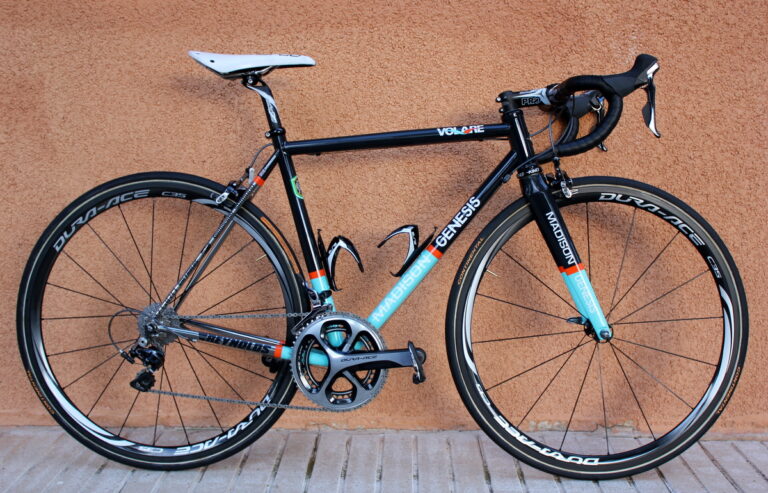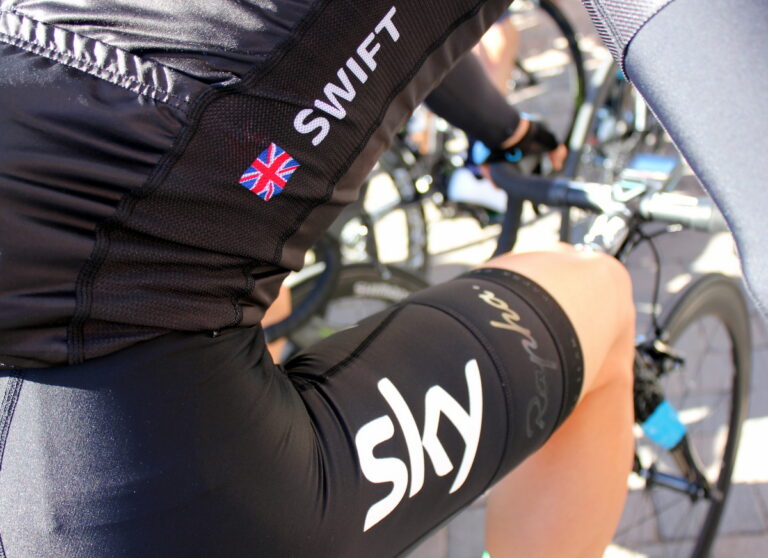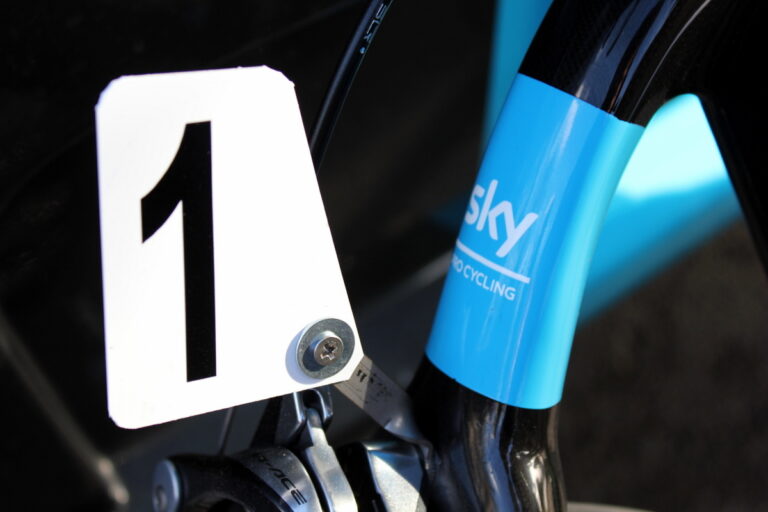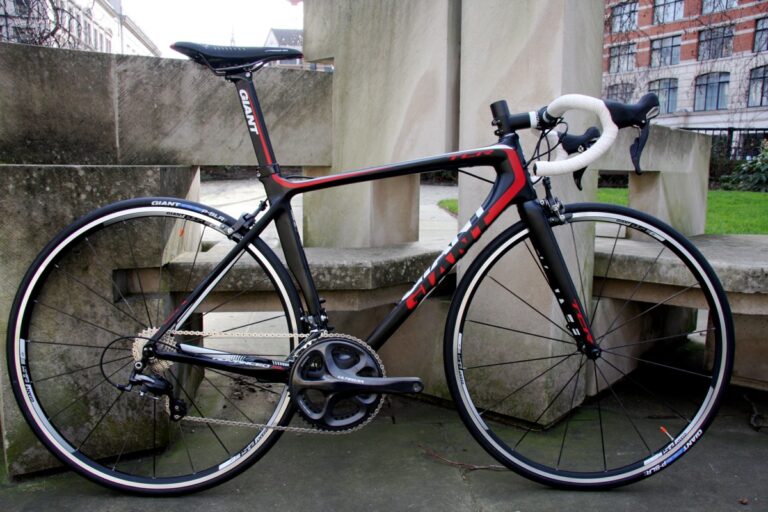If 2012 was a landmark year for British cycling, one that brought the nation its first Tour de France victory, table-topping Olympic and Paralympic success, and a home winner of the national tour, 2013 is the year in which the gains available to the sport remain more than marginal.
Throughout January, we’ll be considering a number of areas in which cycling can continue to grow in the year ahead, in our series: ‘Follow that! How 2013 can top 2012.’
Legacy was a word bandied with astonishing frequency in Britain’s Olympic year: the concept that the benefits of hosting the world’s greatest sporting tournament should not end with the closing ceremony. For a sport so comprehensively thrust into the spotlight in 2012, the importance to cycling of maintaining its momentum cannot be overstated.

Cycling will return to the site of its Olympic zenith next August when the RideLondon festival brings cyclists back to The Mall and its immediate environs for many of the events that Britain does best: a sportive, an elite criterium, and a professional road race, as well as a fun ride for families.
The Ride London 100, a century ride for amateurs that will broadly follow the route of the Olympic road race from central London to the Surrey Hills and back to The Mall, had attracted more than 55,500 entries when registration closed on Friday January 4. ‘Only’ 20,000 places are available and a ballot will be held to decide who will ride. Lucky winners will be told on Thursday, February 7.
While sportive events attract thousands of participants every weekend, and the biggest, like the Dragon Ride and Etape Cymru, have become staples of the amateur cyclist’s calendar, the discipline lacks a signature event instantly recognizable to the non-cycling public as something they could aspire to; something, have seen on television, they could plan to participate in next year; something, in a nutshell, like the London Marathon.
“The comparison to the London Marathon is a good one,” says Hugh Brasher, race director of the London Marathon, and the man charged with organising all but the RideLondon Classic professional road race.
“However, the Marathon has an advantage, in that we have held the event for 32 years, and so London residents and visitors have a very good idea of what to expect.”
He identified road closures and “community engagement” as the biggest challenges faced by RideLondon. “We have to ensure that as many residents, businesses and visitors to London and Surrey understand the event.” Highlighting the opportunity to participate, to spectate, and to change travel plans to avoid meeting closed roads on the day, are among his priorities. The last of those was partly addressed in the early planning stages, when RideLondon’s dates – Saturday August 3 and Sunday August 4 – were set. Traffic levels are at their lowest in London and Surrey in early August.
Another obvious similarity between the London Marathon and the Ride London 100 is the opportunity for amateurs to compete on broadly the same course as elite athletes. Staging a cycle race involves greater logistical challenges, of course – the necessity for support vehicles to follow the riders being the most obvious – and to counter this and other difficulties, the professional road race, the RideLondon Classic, will depart from central London at 4pm, as the last of the RideLondon 100 participants return. Those unable to meet this deadline, and still on the road by 4pm, will be asked to leave the course.
Sweetspot, the organisation that for the last 10 years has staged the Tour of Britain, will organise the road race. Mick Bennett, Sweetspot’s technical director, told RoadCyclingUK he was “very confident” that teams from cycling’s elite WorldTour would race in London.
“In fact, we’ve had lots of positive stuff back telling me, ‘Yes, we want to ride both Ride London and the Tour of Britain,’ so I’m very confident that we’ll have a very able and willing event in the Classic: 25 six-man teams from all over the world, and one or two unique things that we’re going to be announcing shortly.”
Bennett wouldn’t be drawn on the “unique things”, but expressed his belief that the route faced by the pros in the RideLondon Classic will be harder than that faced by national teams in the Olympic road race. “We are talking about more climbs,” he revealed.
Bennett’s ultimate ambition for the RideLondon Classic is a place on cycling’s elite calendar, whether that be the UCI WorldTour or its replacement, should the World Series of Cycling, promoted by the Gifted Group, be adopted.
Bennett was the driving force behind the Leeds Classic, which occupied a position on the UCI ProTour, the WorldTour’s predecessor. He agrees that Britain is now a cycling superpower, but argued that its racing programme didn’t reflect the stature of its elite riders; a situation he hopes to change, at least in part, with the RideLondon Classic.
“In year three of RideLondon, we want to make that a Classic on the WorldTour calendar,” he said. “To have 55,000 people register [for the RideLondon 100] just shows the thirst. To have a reaction at that level is a complete surprise to all of us.”
The London Marathon has undoubtedly drawn popularity from its position as the nation’s leading fundraising event. Many positions on the start line have been guaranteed to charities including Clic Sargent, Diabetes UK, Kidney Research and Scope .
Shelter has been allocated 125 places, and hopes to raise £115,000 from the RideLondon 100 for its work with homeless people and those in bad housing. Lizzi Wagner, Shelter’s Community and Events Manager, said fundraising from cycling events “just makes sense” for her charity.
“With the popularity of cycling going from strength to strength, and the increasing demand for cycling challenge events – participation is up 52 per cent over the last four years – this was a very straight-forward decision for us,” she said.
Cycling is a sport ‘close to home’ for Shelter’s events team, whose running and ‘active’ events have won awards. Many of those organising fundraising events for the charity are keen cyclists or have backgrounds in the cycling industry.
While places in the RideLondon 100 for riders registering as individuals are massively over-subscribed, charities are still able to offer places, albeit to those prepared to accept a fundraising commitment. Riding for Team Shelter costs £50 for registration, and a commitment to raise £750.
Many will see the opportunity to benefit a good cause as its own reward, but charities are able to provide support for their riders that individuals might not enjoy. Shelter hopes to offer advice on training, injury prevention, and maintenance, and its riders will have support “before, during, and after the ride,” says Wagner.
The Team GB and Paralympics GB cycling teams were the most successful of any last summer. RideLondon will provide the opportunity for cycling to set the standard for the legacy of the Games.
“We’re confident that RideLondon will become one of the world’s best cycling events,” says Brasher, “and that’s an Olympic legacy we can all be proud of.”





